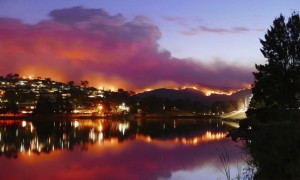They cannot legally move either forward or backward, just like hundreds of migrants and refugees stranded in the Balkan region following border closures.
Jiyan Ali is from Syria. He and his friends have located a fence along the border, easy to jump over, but Ali hesitates.
"I don’t know, sometimes I think 'there’s the border, there’s Croatia, there’s Europe, here’s the Balkans, I only need a few steps to cross.' I don’t know if it is a smart thing to do anymore. I don't know how smart is it to make that step, but maybe it is better to use the smugglers to make it there," Ali said.
Local aid workers say that some 100 people try daily to cross illegally from Serbia to Croatia, or further north to Hungary, over a barbed wire fence.
"We just tried two times to go to Croatia. The police took us and sent us back here. One night, the police here took us to Hungary’s border. We didn’t want to pass because until here we had papers. We were legal up to here, so we didn’t want to go further illegally. So we came back to this camp," said Ehsan Rahmatjan, refugee from Herat, Afghanistan.
Over a million people have used the Balkan route to move further into Europe since 2015.
At the same time, 130 new migrants arrive daily in Serbia, mostly through Bulgaria, using clandestine crossings.
And speaking of future plans, Rahmatjan said he's now had enough, and may opt to return home.
The local centre for asylum seekers is just metres away from the country's border with European Union-member Croatia. But their dream of settling there is still up in the air.







